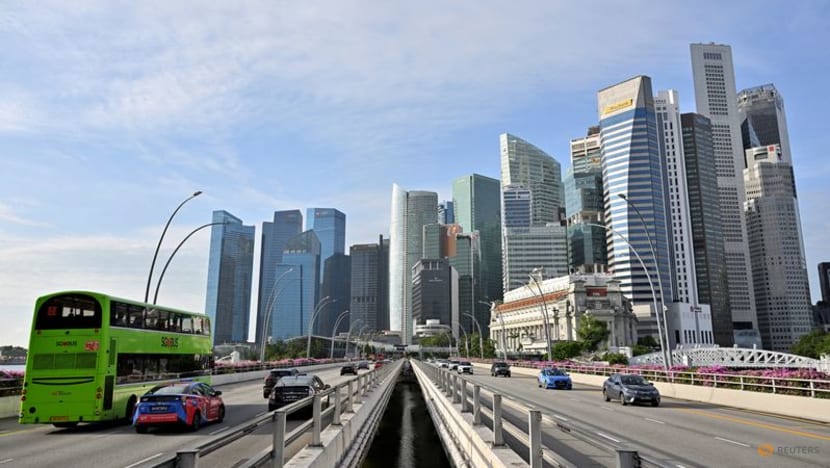Singapore drops to 7th worldwide in ability to attract and retain talent
The country fell five spots to seventh in a global talent competitiveness ranking, with weaknesses in education spending and cost of living offsetting strengths in readiness.

A view of the Singapore skyline on Jan 27, 2023. (File photo: Reuters/Caroline Chia)

This audio is generated by an AI tool.
SINGAPORE: Singapore fell five places to seventh in a global ranking of economies by their ability to attract, develop and retain talent.
The country also lost its status as Asia's top performer in the list, overtaken by Hong Kong, which climbed five spots to fourth place. Switzerland retained its first-place position, followed by Luxembourg and Iceland.
The ranking, published on Tuesday (Sep 9) by Swiss-based International Institute for Management Development (IMD) World Competitiveness Center, evaluated each economy using statistical data and survey responses from 6,162 executives. It assessed three pillars: investment and development, appeal, and readiness.
Singapore’s sharpest decline was in the investment and development pillar, where it dropped from 22nd in 2024 to 30th place. This pillar considers factors such as public education spending, pupil-to-teacher ratios and the implementation of apprenticeships.
Public expenditure on education amounted to just 2.1 per cent of Singapore’s GDP, ranking it 63rd on that indicator.
Another weakness was the high cost-of-living under the appeal pillar, where Singapore ranked 65th.
STRENGTH IN TALENT READINESS
Still, Singapore continued to perform strongly in readiness, slipping only one position to second place.
Executives surveyed rated the skills acquired through Singapore’s primary and secondary education system highly, saying they matched the needs of a competitive economy.
Other strengths included the proportion of science graduates, the number of international tertiary students, and scores from the OECD’s PISA survey of 15-year-olds.
Singapore also ranked third in a sub-indicator measuring how highly skilled foreign professionals viewed its business environment.
At a press conference on Monday, IMD World Competitiveness Center director Arturo Bris said the rising cost of living in Singapore has made it harder for talent to stay.
He added that while Singapore does "more than enough" in education, it ranks low due to its relatively low investment in this area.
Professor Misiek Piskorski, dean of executive education at IMD, noted that organisations are relocating to neighbouring countries such as Indonesia, Malaysia, Thailand and Vietnam, which have become more stable and prosperous, and companies can get a "similar quality workforce for a much lower price".
"So it's not necessarily that the talent itself is leaving, it's that many organisations are leaving, and the sort of talent follows with that," he said.
Still, Prof Piskorski expressed confidence Singapore would rebound, saying he expects the country to come back with a "very well thought-out plan" to reattract people.
Apart from Hong Kong, the United Arab Emirates also joined the list of Asian economies in the top 10, coming in ninth.
IMD said both Hong Kong and the UAE had successfully attracted large numbers of international students. The UAE was found to have a “highly competitive” private sector, while Hong Kong was praised for its “outstanding” academic performance.
According to IMD, international student mobility will lay the foundation for long-term talent strategies, particularly for countries that can integrate these students into their labour markets.
Other Asian economies in the top 50 include Taiwan, which placed 17th, and Malaysia, which placed 25th. South Korea was 37th on the list and China was ranked 38th.

















